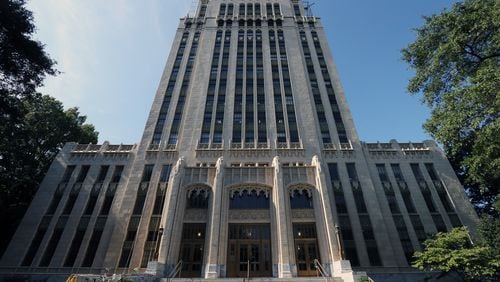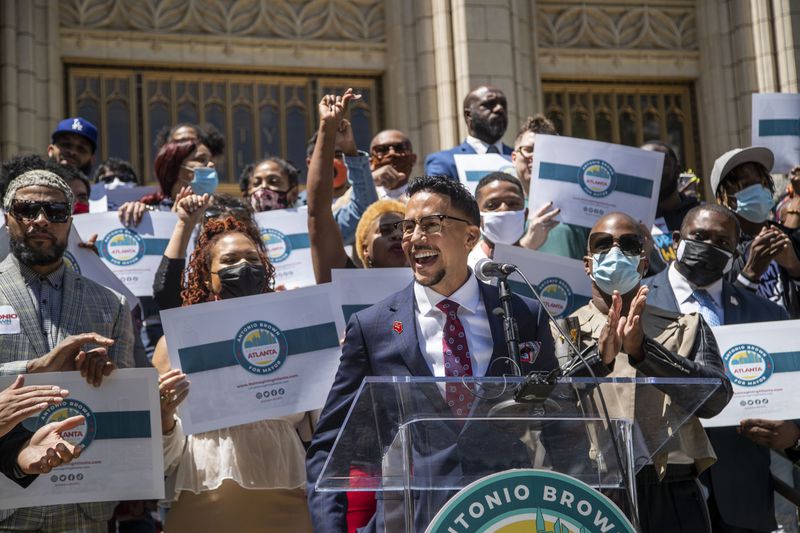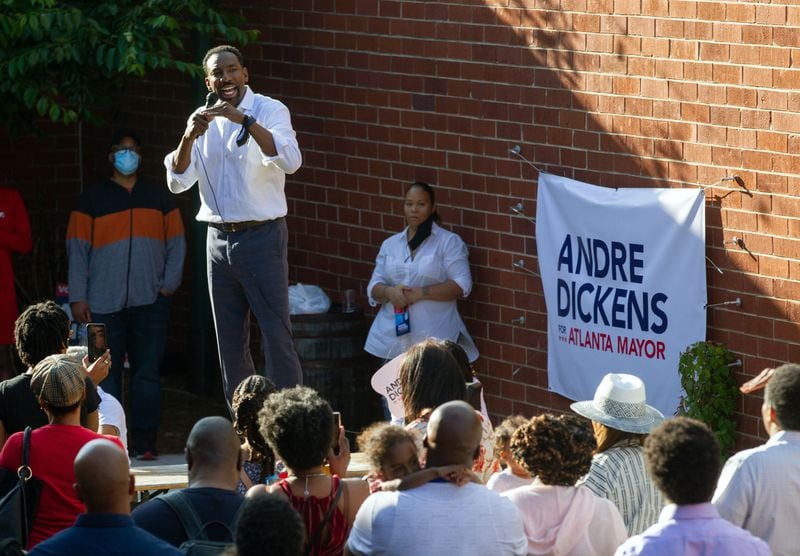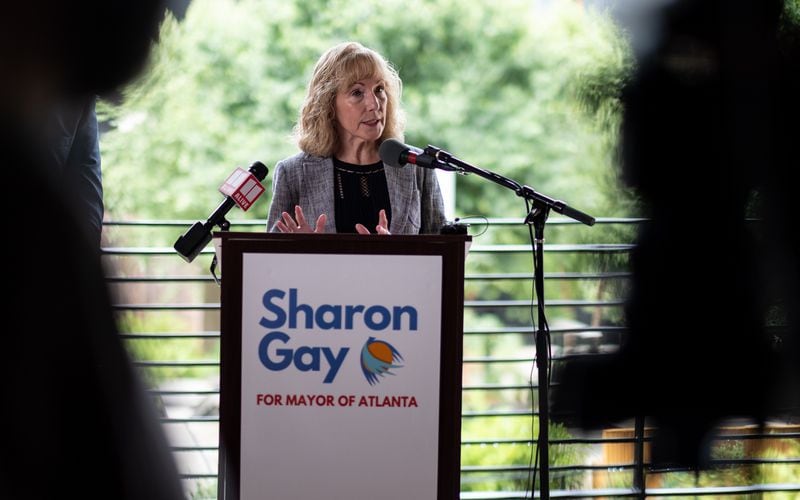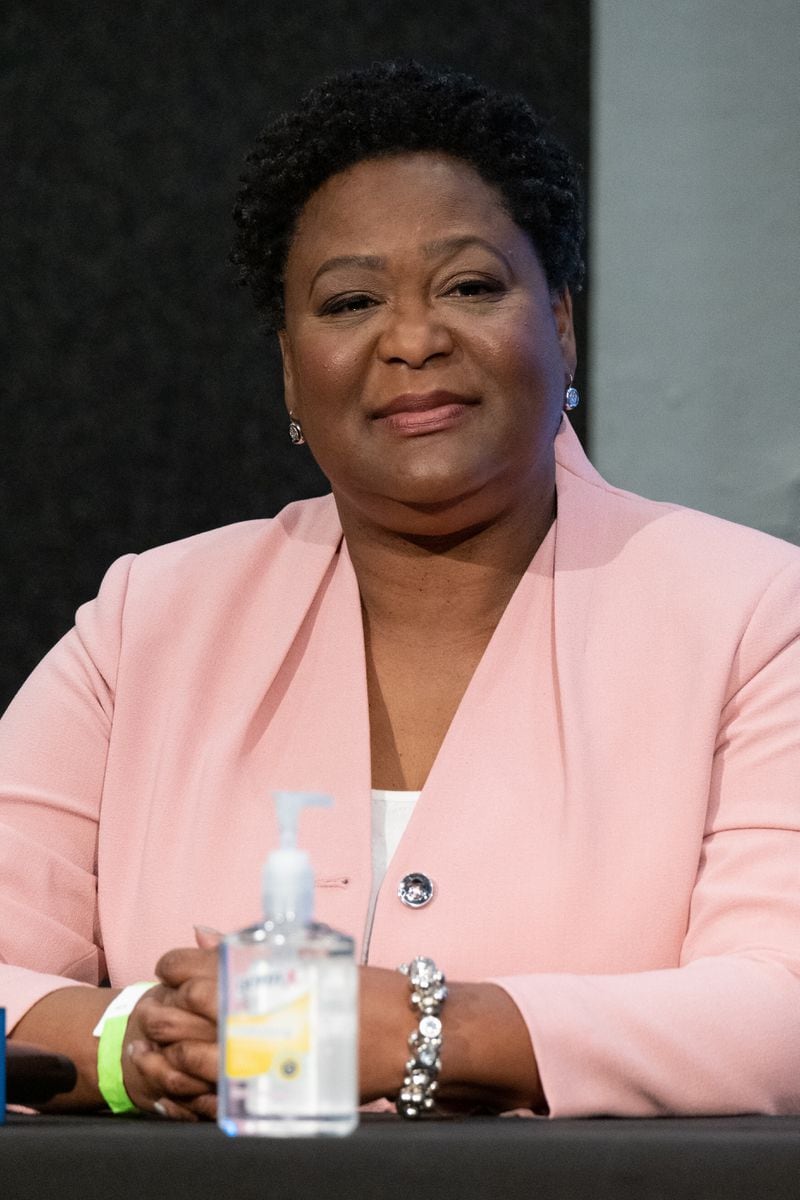Sanaa Akindele was shopping with her mother at Lenox Square on a recent July afternoon, just hours after they heard gunshots a block away from their home.
Still shaken by the incident, Akindele and her mother discussed Atlanta’s growing crime rate and the potential reasons for it. They also talked about the need for an immediate solution to the rise in violence.
“The crime in Buckhead has been spiking exponentially, to the point where people want to create an entirely new place,” said Akindele, 17, referring to calls for the north Atlanta community to become a city on its own.
The mother and daughter’s lament about crime is a conversation being had by residents across Atlanta, and the growing violence will no doubt be the central issue in this year’s mayoral race.
In the last year, at least six shootings — including a fatal one — have occurred at the Buckhead mall. A security guard was shot at the mall last month after two 15-year-olds tried to enter the Apple store after hours.
Atlanta had a historically deadly 2020, when police investigated 157 homicide cases which was the most in more than two decades. As of June this year, homicides had increased in Atlanta by more than 50% and shootings had increased by 40% compared to the same time period in 2020.
On Monday, Gov. Brian Kemp announced his plan to ask the General Assembly to tackle the issue by passing new state laws during a special legislative session this fall, when lawmakers could also vote to allocate money for additional state police officers.
“[Public safety is] more important this year than in recent elections largely because crime is going up,” said Tom Clark, a political science professor and director of Emory University’s Politics of Policing Lab.
Mayor Keisha Lance Bottoms, who opted out of a reelection bid, wants to invest $70 million into the city’s public safety plans, which includes the creation of a Mayor’s Office of Violence Reduction to develop and implement strategies to address what Bottoms calls “a COVID crime wave.”
The five major candidates vying to win the top seat at City Hall in November are each touting themselves as the best crime fighter, offering solutions from incentivized police hiring plans to workforce development programs.
Their task is a daunting balancing act as large summer protests in 2020 called for police reform amid the murder of George Floyd by a Minneapolis police officer, while others in the community want greater police enforcement as crime has soared.
Atlanta Police Chief Rodney Bryant said Friday the city’s homicide rate has dropped in the past few weeks, and suggested the city’s public safety plans are working. But some Buckhead residents are using the spate of crime as evidence for the need to secede from Atlanta.
The next mayor must hold the city together, and strike a balance between getting a grip on the violence while not being seen as over-policing Black and brown communities.
All of the mayoral candidates say Atlanta needs more programs to deter younger people from criminal activity. They also want to fill the vacancies in Atlanta’s police force.
But there still appears to be slight differences among each candidate’s public safety pitches.
City Councilman Antonio Brown wants to hire a public safety commissioner and create a Department of Public Safety and Wellness to respond to non-emergency calls. He also supports the creation of a regional public safety training facility.
Councilman Andre Dickens wants to rebuild 911 call centers to improve emergency response times. He wants to continue Bottoms’ efforts to install more license plate readers and streetlights. He also wants to create a gang task force to reduce violent crime and to protect residents.
Sharon Gay pitches a holistic idea to remedy lead contamination in buildings as a way to combat mental illness and prevent violent crime. The attorney also wants to reach an agreement with Fulton County for the joint use of Atlanta’s detention center.
Dickens and Gay publicly support crackdowns on businesses that cultivate criminal activity.
Council President Felicia Moore, a 20-year veteran of the City Council, says she’s the only candidate experienced enough to “know how city government works and how it doesn’t work.”
She said she wants to create “a safety net” for Atlanta’s children and a stronger police force.
Former Atlanta Mayor Kasim Reed says he’s the only one who can prevent Buckhead’s succession in a November 2022 referendum. He told The Atlanta Journal-Constitution that Atlanta must “very calmly and methodically” expand the police force beyond its current capacity for 2,033 officers.
But Tiffany Roberts with the Southern Center for Human Rights called nearly all of the public safety plans pitched by the candidates “troubling” because they remind her of the tough-on-crime policies of the 1990s that fueled mass incarceration.
“Candidates aren’t really saying what they’ll do, they’re just signaling who they’ll punish,” Roberts said.
“There seems to be universal agreement down the ticket that that approach is going to be effective and so I worry about how it will harm Black, brown and poor people in Atlanta.”
Roberts urged the candidates not to criminalize certain parts of the city or to rely entirely on arrests. Instead, she said the candidates should create platforms in collaboration with community organizations “to reduce the incidence of harm and crime in our communities.”
Atlantic Station resident Tykwaan Bryant said he hasn’t paid attention to the mayor’s race due in part to the coronavirus pandemic. He called the rise in violent crime the result of Atlanta’s growth as a tourist city amid gentrification that’s displaced residents while increasing poverty.
“People are out of jobs and what comes with that is crime,” Bryant said. “The next mayor should have their ear to the streets and ask the people what they need.”
A snapshot of each candidate’s criminal justice record
Credit: Alyssa Pointer/Alyssa.Pointer@ajc.com
Credit: Alyssa Pointer/Alyssa.Pointer@ajc.com
City Councilman Antonio Brown
Brown joined city council after a 2019 special election. He recently pushed the council to pass a resolution urging the police to revise its policy requiring officers to intervene if they see a colleague violating the law. He also proposed an ordinance to outlaw tear gas and rubber bullets, which police argue serve as essential tools that allow them to deal with unruly crowds as safely as possible.
Credit: Steve Schaefer
Credit: Steve Schaefer
City Councilman Andre Dickens
After Dickens defeated a citywide incumbent in 2013, he was reelected in 2017. He co-sponsored legislation that no longer requires people to reveal prior convictions on employment applications at the city. Dickens previously introduced and passed “8 Can’t Wait” legislation to ban dangerous police tactics and create stronger de-escalation practice.
Credit: Ben Gray
Credit: Ben Gray
Attorney Sharon Gay
Gay has never held an elected office before. She served as vice president of governmental affairs for the Metro Atlanta Chamber of Commerce and worked for the State Attorney General’s Office. She was also deputy chief of staff and executive counsel to former Mayor Bill Campbell.
Credit: Ben Gray
Credit: Ben Gray
Council President Felicia Moore
Moore has sponsored and co-sponsored 72 forms of public safety legislation during her 20 years as a council member. Moore and then-Councilmember Mary Norwood co-sponsored 2016 and 2017 ordinances to increase pay for police officers. Moore also authored “Mattie’s Call,” which lets law enforcement agencies activate emergency missing alerts for the elderly or others with mental disabilities.
Former Atlanta Mayor Kasim Reed
Reed said he built “the biggest police force in the history of the city” from 2010-18. He claims crime dropped by 37%. Reed removed questions related to prior convictions from city employment applications in 2013, and in 2017 he signed an ordinance reducing the penalty for possession of one ounce of cannabis or less.
2021 Homicides: by the numbers
Three of the 64 Atlanta homicide cases stem from incidents that took place prior to this year, but each was officially ruled a homicide in 2021.
The average age of those killed this year was about 34, compared to about 33 in 2020.
Most were Black men. Seven Black women and teens, two Hispanic males and four Asian women were also among the dead.
Most were killed by rifles and handguns.
Compiled by Jeremy Redmon
